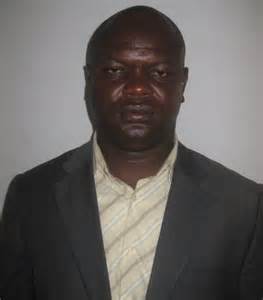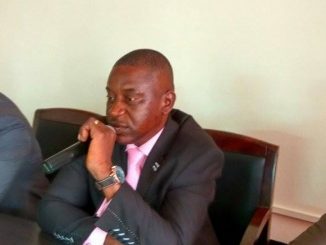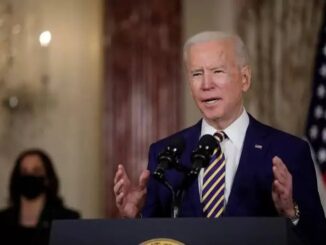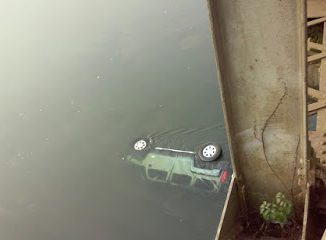
The breakout of Ebola Virus Disease in West Africa in particular Sierra Leone, Guinea and Liberia had seen many citizens of the west calling the citizens of West Africa all types of derogatory names and further demonizing us.
They levelled all sorts of allegations against us, as if they and the United States of America have never had poor health systems or health challenges.
To make matters worse, some members of the western media advocated for the ban of West Africans travelling to their Countries, and further agitated for isolation of our people and Countries, while others suggested containment on arrival. Some even called for Ebola virus to be used as spray to contaminate the children of immigrants. They further went on to discourage Medicos from continuing with their help, but for the Intervention of wise and gracious Political leaders including President Barack Obama and the CDC.
But the WEST was the first to contaminate Africa, in particular Sierra Leone.
Like Influenza which struck a devastating blow to America in 1919 thereby leaving nearly 675,000 Americans dead, hundreds of thousands more orphaned and widowed, equally so Ebola has been around almost thirty years ago but only striking West Africans now with a little less fatality comparatively.
According to United States Department of Health and Human Services “in early March of 1918, officials in Haskell County in Kansas sent a worrisome report to the Public Health Service, for the federal government to know that “18 cases of influenza of a severe type” had been reported.
“By May, reports of severe influenza trickled in from Europe. “Within two months, influenza had spread from the military to the civilian population in Europe. From there, the disease spread outward—to Asia, Africa, South America and, back again, to North America.
“Wave after Wave:”
“In late August, the influenza virus probably mutated again and epidemics now erupted in three port cities: Freetown, Sierra Leone; Brest, France, and Boston, Massachusetts.
“In Boston, dockworkers at Commonwealth Pier reported sick in massive numbers during the last week in August. Suffering from fevers as high as 105 degrees, these workers had severe muscle and joint pains. For most of these men, recovery quickly followed. But 5 to 10% of these patients developed severe and massive pneumonia. Death often followed.
“Within days, the disease had spread outward to the city of Boston itself. By mid-September, the epidemic had spread even further with states as far away as California, North Dakota, Florida and Texas reporting severe epidemics.
“On September 27th, influenza had become so widespread that most states were unable to keep accurate records. Many simply failed to report to the Public Health Service during the pandemic, leaving epidemiologists to guess at the impact the disease may have had in different areas.
“As influenza spread, local officials urgently requested the Public Health Service to send nurses and doctors. With less than 700 officers on duty, the Public Health Service was unable to meet most of these requests.
“On the rare occasions when the PHS was able to send physicians and nurses,
they often became ill en route. Those who did reach their destination safely often found themselves both unprepared and unable to provide real assistance.
“In October, Congress appropriated a million dollars for the Public Health Service. The money enabled the PHS to recruit and pay for additional doctors and nurses.
“The existing shortage of doctors and nurses, caused by the war, made it difficult for the PHS to locate and hire qualified practitioners. The virulence of the disease also meant that many nurses and doctors contracted influenza within days of being hired.
“Confronted with a shortage of hospital beds, many local officials ordered that community centers and local schools be transformed into emergency hospitals. In some areas, the lack of doctors meant that nursing and medical students were drafted to staff these makeshift hospitals.
The Pandemic Hits:
Entire families became ill. In Philadelphia, a city especially hard hit, so many children were orphaned that the Bureau of Child Hygiene found itself overwhelmed and unable to care for them.
As the disease spread, schools and businesses emptied. Telegraph and telephone services collapsed as operators took to their beds. Garbage went uncollected as garbage men reported sick. The mail piled up as postal carriers failed to come to work.
State and local departments of health also suffered from high absentee rates. No one was left to record the pandemic’s spread and the Public Health Service’s requests for information went unanswered.
As the bodies accumulated, funeral parlors ran out of caskets and bodies went uncollected in morgues.
Protecting Yourself From Influenza:
In the absence of a sure cure, fighting influenza seemed an impossible task.
In many communities, quarantines were imposed to prevent the spread of the disease. Schools, theaters, saloons, pool halls and even churches were all closed. As the bodies mounted, even funerals were held out doors to protect mourners against the spread of the disease.
Public officials, who were unaware that influenza was a virus and that masks provided no real protection against viruses, often demanded that people wear gauze masks. Some cities even passed laws requiring people to wear masks. Enforcing these laws proved to be very difficult as many people resisted wearing masks.
Advertisements recommending drugs which could cure influenza filled newspapers. Some doctors suggested that drinking alcohol might prevent infection, causing a run on alcohol supplies. Some folk healers insisted that wearing a specific type of amulet or a small bag of camphor could protect against influenza.
States passed laws forbidding spitting, fearing that this common practice spread influenza.
None of these suggestions proved effective in limiting the spread of the pandemic.




Leave a Reply